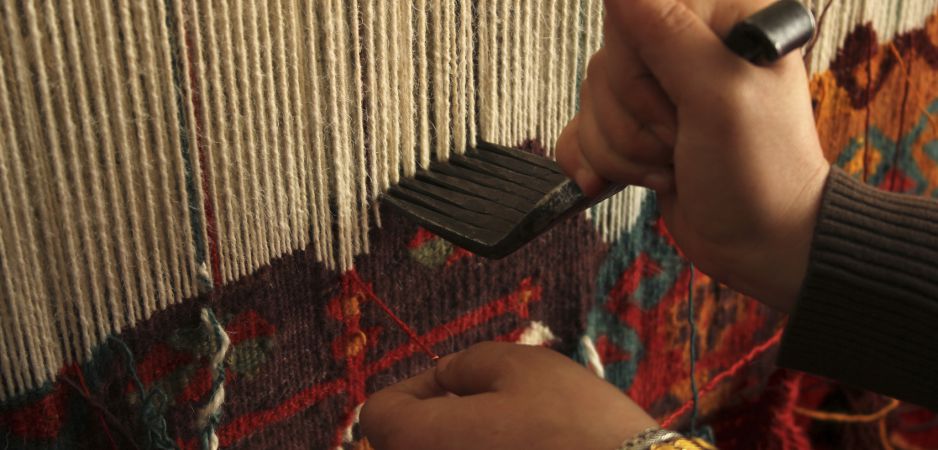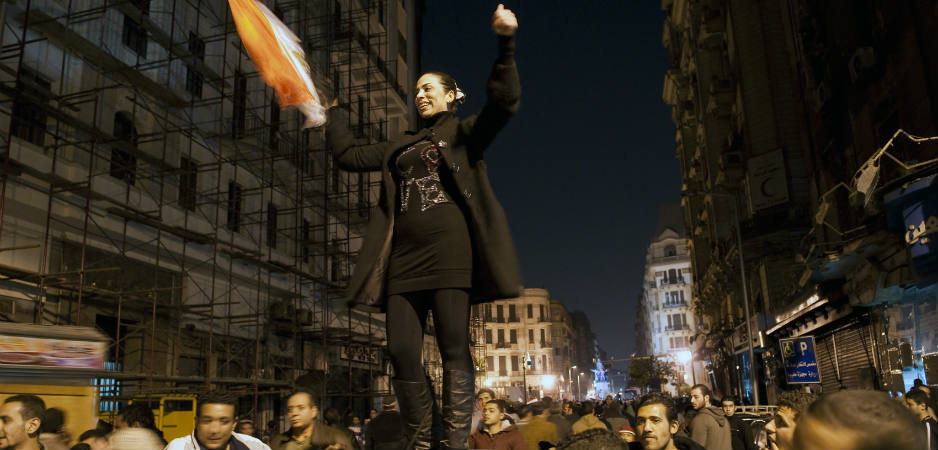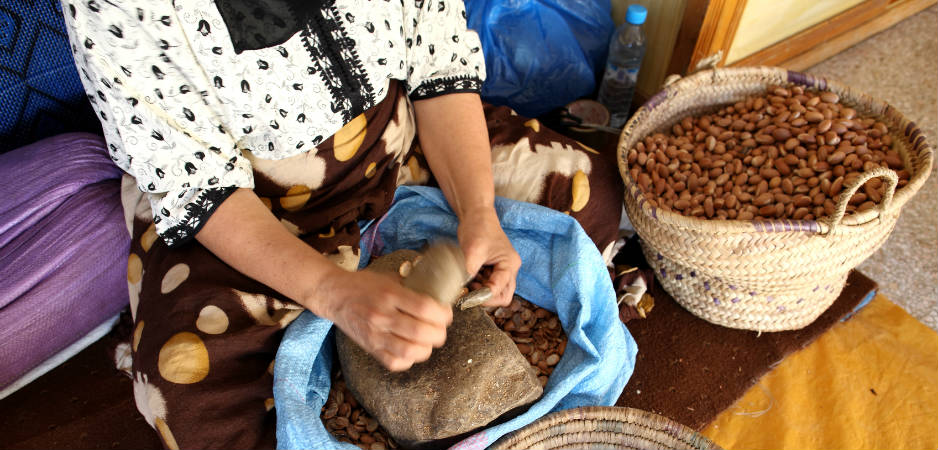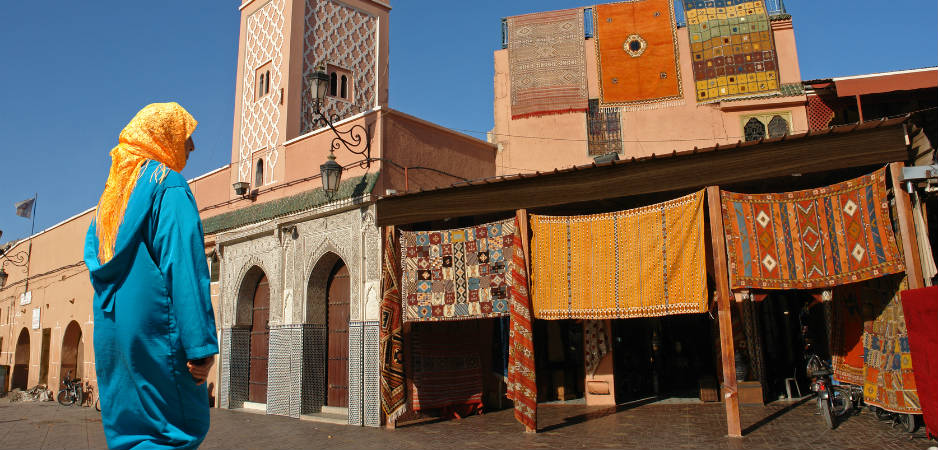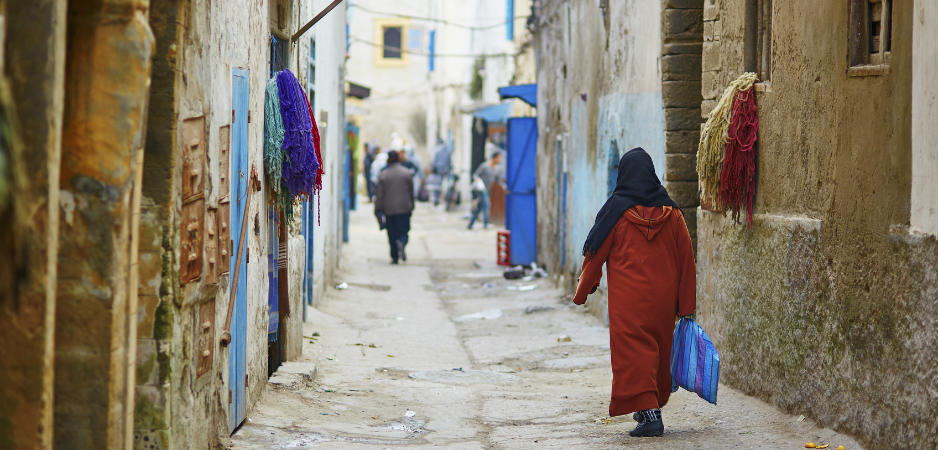Counterterrorism strategy in the Middle East and North Africa can no longer avoid the involvement of women.
According to the World Bank, 48.3% of the population in the Middle East and North Africa (MENA) is female. Yet despite their prominent place in society—and the fact that women and children are disproportionately affected by violent conflict—the counterterrorism community has done little to assess their roles in preventing, promoting and participating in violent extremism in the region. As the Islamic State (IS) digs in to defend its last Iraqi stronghold in Mosul and launches a counterattack in Kirkuk, it is clear that a more comprehensive strategy is needed now more than ever.
From Marrakech to Tunis and beyond, the most current research on countering violent extremism (CVE) in the Middle East and North Africa demonstrates the nuanced roles women play in civil society, not just as victims but also as perpetrators of conflict and dynamic agents of community resilience.
Historically, women have sustained violent extremism organizations (VEO) by providing structural support and serving as educators, fundraisers, recruiters and members of frontline security forces. “While conventional militaries have hesitated in bringing women on board, terrorists across the ideological spectrum have used women for a wide range of tasks, ranging from logistics and recruitment to a frontline role, say as a suicide bomber,” says former Pakistani Ambassador Hussain Haqqani in a report for the Institute for Inclusive Security.
These roles are often heavily involved, and women have increasingly begun serving in combat roles as IS has grown in tactical and geographical scope—a major shift from strategies used by other terrorist groups like al-Qaeda, which is more likely to use women solely for operational support.
Building Community Resilience
Yet women also act as dynamic purveyors of change across the MENA region, including helping to detect early warning signs of radicalization and building social cohesion and resilience networks as entrepreneurs, advocates, law enforcement officers and community leaders.
The 2016 Global Entrepreneurship Summit highlighted the US administration’s emphasis on building community resilience by empowering female entrepreneurs in the Middle East and North Africa. The World Bank followed suit, launching a new Women for Resilience Initiative to provide business support services to female entrepreneurs in the region as a means of bolstering resilience value chains.
A great body of research affirms the value of this work, demonstrating a definite positive correlation between women’s empowerment and a reduction in acts of violent extremism. For example, a 2013 Brookings study conducted in Morocco and Bangladesh confirms that when women are given access to education and are empowered economically, socially and legally, violent extremism is less likely to spread. The study reports that “in microlending, for every $1US a woman earns, she reinvests 90 percent back into her family … and has 2.2 children who are healthier and better educated.”
These positive outcomes, when coupled with targeted CVE interventions—including training moderate female imams on promoting religious moderation and tolerance—have created effective counternarratives to radical ideologies at a grassroots level.
Gatekeepers
Women in the MENA region are also uniquely positioned as community gatekeepers and civil society leaders. CVE expert Georgia Holmer argues: “Not only do women’s participation in a community—formally or informally—strengthen its fabric, women themselves are among the most powerful voices of prevention in their homes, schools, and communities. Women as mothers, caretakers, partners, teachers, and faith leaders—can, uniquely, help build the social cohesion, sense of belonging, and self-esteem that youth might need to resist the appeal of a violent group. Community engagement in CVE requires the participation of women to be successful.”
A report from Georgetown University’s Women, Peace, and Security also affirms their critical role CVE efforts, noting: “[W]omen are often uniquely positioned within their families and communities to provide essential information to those working to counter extremism. In many cases, CVE practitioners engage with only certain community gatekeepers and neglect the input of women and women’s civil society groups who may also have access or intelligence. Anecdotal evidence also shows that family ties are a strong predictor of extremism, and that women are central to understanding how to leverage the role of the family in promoting positive change.”
While more empirical data is needed on the impact of programs to engage women in deradicalization efforts in MENA specifically, the US State Department is currently piloting a series of programs in North Africa to help women’s civil society groups speak out against violent ideologies.
 Fair Observer provides you deep and diverse insights for free. Remember that we still have to pay for servers, website maintenance and much more. So, donate now to keep us free, fair and independent.
Fair Observer provides you deep and diverse insights for free. Remember that we still have to pay for servers, website maintenance and much more. So, donate now to keep us free, fair and independent.
Several counter-messaging programs also exist in South Asia and elsewhere that might be tailored to provide culturally relevant solutions to extremism in the region.
First, Sisters Against Violent Extremism (SAVE)—the world’s first female counterterrorism platform—established Mother Schools, a family-centered security platform to sensitize mothers to recognize early signs of radicalization in their children. These pilot programs now work to strengthen local resilience in communities that are most vulnerable to violent extremist ideologies, including Kashmir, Tajikistan and Nigeria, and offer a unique model of community-led prevention interventions that could be highly successful in the MENA region.
Similarly, PAIMAN Trust has worked very successfully with mothers and at-risk youth to offer counter-messaging to extremist ideology in Pakistan’s conflict-ridden Federally Administered Tribal Areas (FATA). By working holistically with various stakeholders, including clergy and elected officials, the organization has effectively educated entire communities on the impact of radicalization and the roles that individuals can play as peacebuilders.
Policy Toolbox
As international policymakers seek to develop gender-based approaches and frameworks into their CVE policies, the most obvious instrument available is to address CVE within the broader women, peace and security (WPS) framework espoused by United Nations Security Council Resolution 1325 and the six subsequent resolutions on WPS that have followed it. The groundbreaking resolution laid the foundation for addressing women’s role in the security sector, bringing into focus the ways in which women can serve as leaders and partners in conflict prevention and resolution.
More recent legislation—namely UN Security Council Resolution 2242 and 2178, which “focuses on the emerging threat posed by foreign terrorist fighters and calls for the need to empower women as a prevention response to the spread of violent extremism”—are also highly underutilized resources in CVE policy toolbox.
The policy community should also take advantage of a recent shift in focus from conventional, security-focused counterrorism measures to counter violent extremism to approaches to prevent violent extremism, which place additional emphasis on the importance of community resilience and civil society engagement as the solution to counter groups like IS.
In a recent Brookings report, Erin Marie Saltman and Ross Frenett argue that “CVE has acted as the soft side of counterterrorism and has evolved greatly in recent years. International governments and practitioners are crucially recognizing that a preventive approach is critical to addressing the roots of radicalization and to more effectively counter recruitment into violent extremist networks. Despite women being active members in a range of terrorist organizations for many years, it is only more recently that CVE has begun to include a more comprehensive recognition of the gender dynamics at play within the processes of radicalization.”
Although US policymakers have been notoriously divided on this shift to preventative work, preventing violent extremism (PVE) was the focus of UN Secretary-General Ban Ki-moon’s plan of action on violent extremism that was released in December 2015 and will likely remain at the forefront of the international community’s work to address violent extremist ideologies going forward.
Ultimately, it is well past time to transition beyond a military-focused CVE approach into an inclusive security model to defeat extremist ideologies and the groups that espouse it. At the same time, it is essential that we not overly securitize women’s roles, but rather see CVE within a broader conceptual lens of gender and security.
As a report from Georgetown University’s Institute for Women, Peace, and Security promulgates: “[E]ffective CVE strategies must be coordinated, multi-sectoral approaches that include high-level diplomacy and leverage military action with governance, development, and human rights programming that include the promotion of gender equality.”
CVE policy in the Middle East and North Africa can no longer avoid the role of women. The risk is far too great.
The views expressed in this article are the author’s own and do not necessarily reflect Fair Observer’s editorial policy.
Photo Credit: Oleg Zabielin
For more than 10 years, Fair Observer has been free, fair and independent. No billionaire owns us, no advertisers control us. We are a reader-supported nonprofit. Unlike many other publications, we keep our content free for readers regardless of where they live or whether they can afford to pay. We have no paywalls and no ads.
In the post-truth era of fake news, echo chambers and filter bubbles, we publish a plurality of perspectives from around the world. Anyone can publish with us, but everyone goes through a rigorous editorial process. So, you get fact-checked, well-reasoned content instead of noise.
We publish 2,500+ voices from 90+ countries. We also conduct education and training programs
on subjects ranging from digital media and journalism to writing and critical thinking. This
doesn’t come cheap. Servers, editors, trainers and web developers cost
money.
Please consider supporting us on a regular basis as a recurring donor or a
sustaining member.
Support Fair Observer
We rely on your support for our independence, diversity and quality.
Will you support FO’s journalism?
We rely on your support for our independence, diversity and quality.




